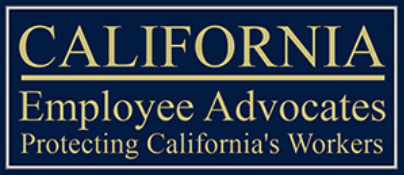There are specific things you can do when you are fired in California to protect your rights. Have you ever felt exploited at your workplace? Being fired for any reason can sting, but being wrongfully terminated is something no one should go through. Focusing on the things that lie ahead and what you can do next can greatly help your sense of self and get back out there.
You have to pick up the pieces. It’s important to consider where you stand from a legal perspective. Know your rights as a California employee because there are laws to protect you.
Fired in California?
1. Ask The Important Questions
When you are called into the boss’ office and given the news of your termination, it is entirely acceptable to ask why. In California, most private-sector employees are “at-will” employment. At-will employment means that under California law, it is legal to fire anyone at any time, without explanation. While this is true, it is still a good idea to ask why you are being fired because it could help you in the future. Check your contract to see if you are an at-will employee.
You will also want to inquire about a severance package. These are the benefits they may offer to you when you are leaving the company. Remember, there is no law in California requiring your employer to provide you with a severance package unless stated in your contract. Your employer is required by law to give you your last paycheck. If your employer denied you your last paycheck, that is a breach of California law.
You may also ask for any unused PTO (paid time off) to be paid out to you, although keep in mind they are not required to do so as it is an employee benefit.
Asking for a letter of recommendation can greatly aid in your next job search. Suppose you made a significant contribution to the company and are not being fired for anything egregious. In that case, this should not be a problem. If you do not feel comfortable asking, don’t fear, you may also reach out to past employers to ask for a recommendation.
2. Know Your Rights When Fired In California
Even as an at-will employee, you still have rights when being fired. Your employer is not required by law to provide an exact reason. Still, it is illegal to fire someone based on age, race, religion, sexual orientation, or political views. Terminating employment for one of the reasons listed is called wrongful termination, and it is illegal.
Employees in California also have certain rights. California’s constitution gives employees the right to privacy at work. If you feel that your employer violated your privacy, this could also be a wrongful termination. You also have the right under California’s constitution to inspect and copy your payroll records. Under the California wage and hour law, non-exempt employees must receive certain breaks, minimum wage, and overtime pay set by the state. If any of these circumstances apply to you, you could be owed money by your employer.
3. Bounce Back
Once you get answers to all of your questions and make sure your employer has been legally compliant with your termination, it’s time to get back out there. If you have been at a company for a while, you likely have an outdated resume. To give yourself the best shot at finding your next great opportunity, look up resume examples in your field. Please make sure you always get someone to look over your resume before sending it out, as there may be things you missed.
Starting a new job search is a great time to reconnect with any industry contacts you may have. They may be able to offer you help or even your next job opportunity. If you do not have any industry connections, now is a great time to get on Linkedin and make some!
It can be painful to be fired in California, especially if you have been wrongfully terminated or discriminated against. It takes people time to recover from toxic work environments. If your wrongful termination caused you emotional distress, you may also be entitled to your employer’s compensation. It is crucial to hold your employer accountable for any illegal acts to protect yourself and others in the future.
*Disclaimer: This article post is not meant to substitute for legal aid or give legal advice. If you or someone you know requires legal aid, please reach out to a qualified attorney. California Employee Advocates is not a law firm.


Recent Comments